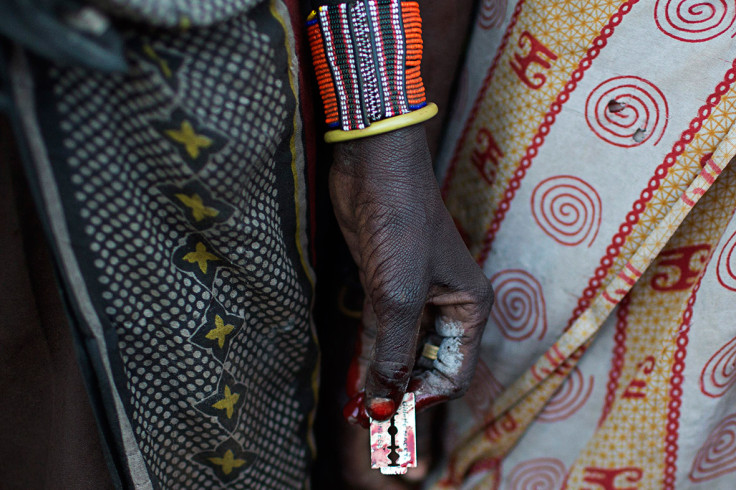Thousands of girls paraded after undergoing female genital mutilation in Kenya
Unicef records show that 200 million girls and women alive today have undergone FGM across 31 countries.
Around 2,800 girls from south-western Kenya were subjected to female genital mutilation before being paraded on the streets last week. The "cuttings" took place during the Kuria tribe's traditional circumcision event called Esaro - a huge cultural affair that sees through the circumcision of both boys and girls.
Everyday, since the "cutting" season started in late September, girls who have undergone circumcision were paraded through the region's main urban centres to show defiance to the government's clampdown on the practice.
The girls were showered with gifts and cash offerings as a means to encourage other young girls to undergo the procedure. Female genital mutilation (FGM) involves the ritual cutting or removal of the outer layers of a girl's genitalia, which sometimes includes the clitoris.
Video footage showed the girls donning tinsel-covered blankets and balloons as they marched around the town centre accompanied by music and a group of men wielding machetes and other weapons in an apparent stance to deter police intervention, The Guardian reports.
Kenya has been the regional champion in the fight against this practice as it outlawed FGM in 2011. The running law stipulates prison sentences of not less than three years or a fine of 200,000 shillings ( £1,408 ) for any person found guilty of aiding FGM, possession of tools used for the procedure and failure to report a person performing FGM. Should the death of a girl result from the cutting, the person involved is liable to face lifetime imprisonment.
Despite the setbacks, the country hopes to eradicate the practice by 2022. Unicef reports that as of 2020, Kenya has shown much stronger progress towards this goal compared to other nations in eastern and southern Africa where more than 4 million girls and women have undergone FGM.
As schools in Kenya have reopened last week, a lot of young girls have been forced to miss their classes in order to undergo the ritual cutting.
Natalie Robi Tingo, founder of the grassroots anti-FGM organisation Msichana Empowerment Kuria, said :
"We have seen girls going back to class while clad in a lesso (light wraparound dress), a sign that they have just undergone FGM. Some girls would go to class bleeding," Tingo said.
One of the highest rates of prevalence of FGM in Kenya is found in the Kuria community which affects 84 % of its female population.

© Copyright IBTimes 2025. All rights reserved.





















